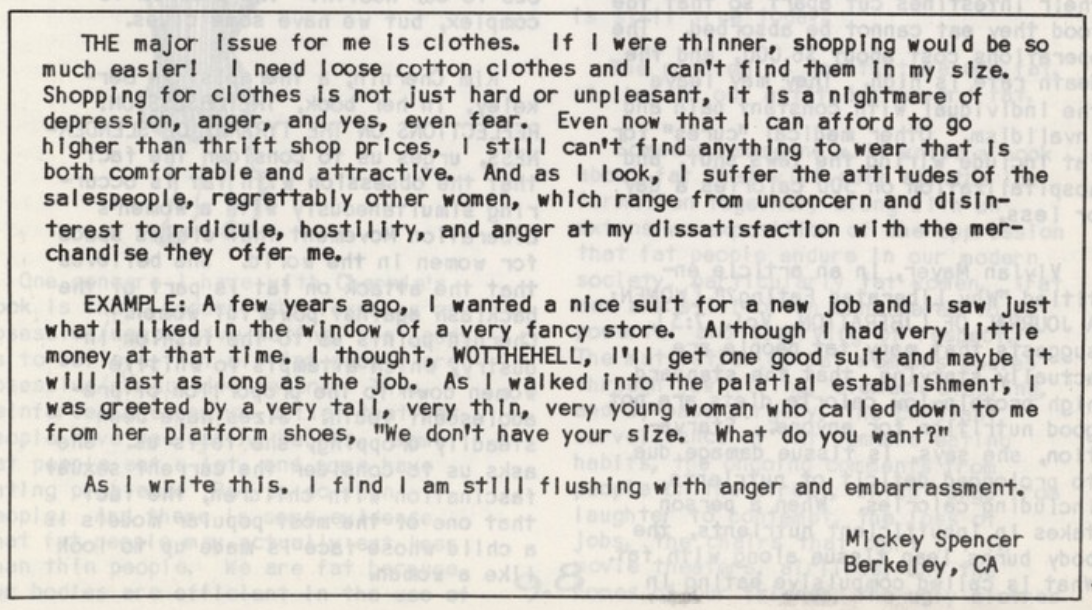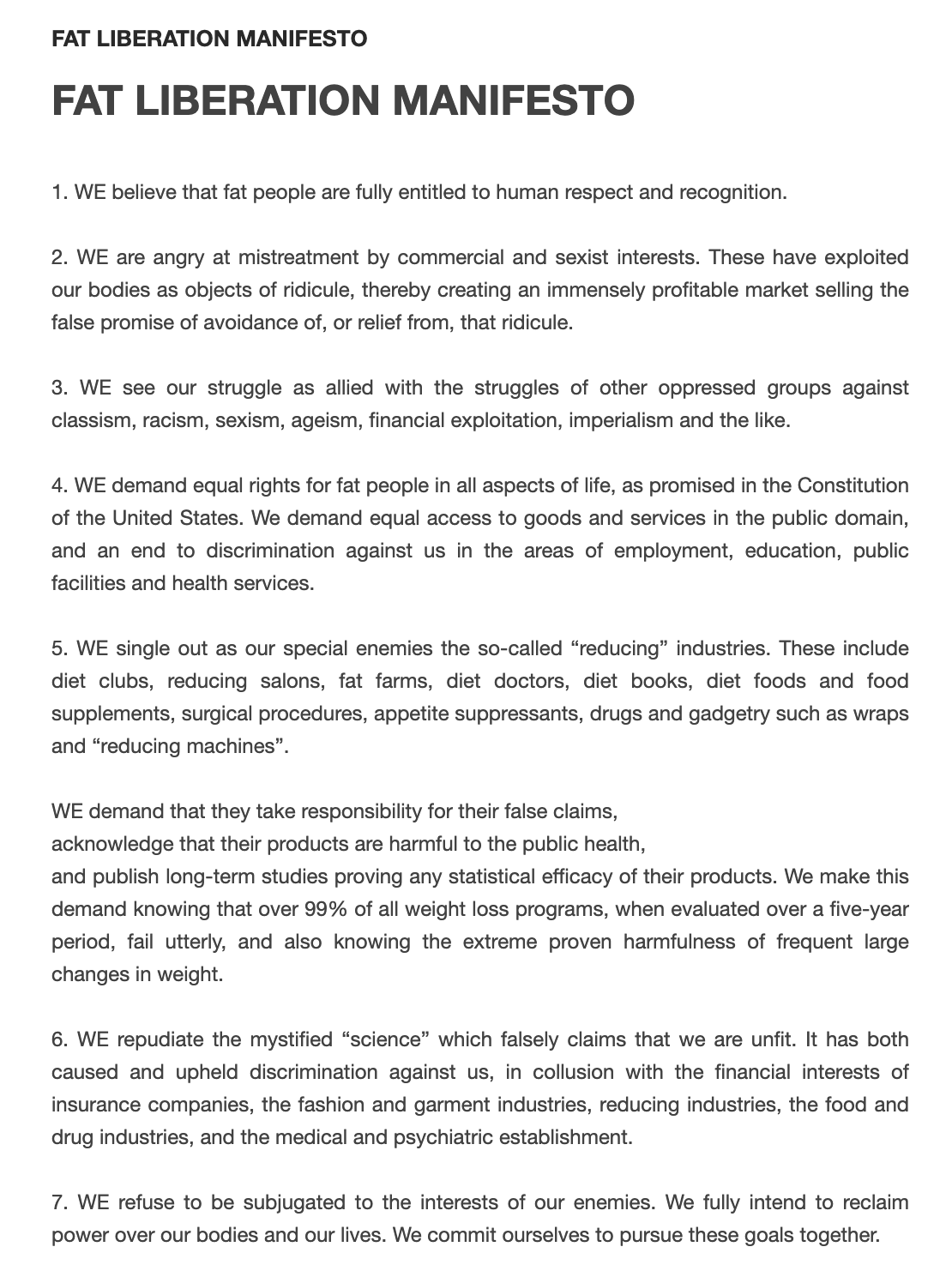
Testimonial about shopping while fat by Mickey Spencer, published in The Broomstick, vol. 5 no. 1, in 1983. The feminist periodical is written for and about women over 40 years of age, who believe that the societal systems in place render women powerless.
Similarly to how women with darker skin are discriminated against because they are not white, the value given to women who are thin is problematic because of the effect it has on how fat women are treated. A testimonial of a woman named Mickey Spencer was included in a January 1983 issue of feminist periodical The Broomstick. In it she states, “I was greeted by a very tall, very thin, very young woman who called down to me from her platform shoes, ‘We don’t have your size. What do you want?’” (The Broomstick). The description of the woman emphasizes how thin women were granted authority and power over fat women by society’s implications. This standard of thinness creates a huge division between women who meet it and women who don’t, inevitably leading to the mistreatment of fat women.

A typed transcript of the “Fat Liberation Manifesto,” originally published in November 1973, but reprinted in vol. 9, no.4 of Off Our Backs, a radical feminist periodical. It was written by Judy Freespirit and Sara Aldebaran on behalf of fat women.
Angered by the intolerance of a skinny-centered culture, “Judy Freespirit and Sara Aldebaran published their ‘Fat Liberation Manifesto’ in response to Susie Orbach’s book Fat is a Feminist Issue” (Gerhardt). The repetition of the word “WE” throughout the manifesto enforces a solidarity between the women in recognizing that they themselves are not flawed, but rather the system that propagates unhealthy lifestyles onto them needs to be reformed. They recognized the problem with the impositions of the media and its degradation of women to promote products and services. In response, they demanded “equal rights for fat people in all aspects of life” (Freespirit and Aldebaran). The Fat Liberation movement called out those who use someone’s unattractiveness as a way to justify their mistreatment of them. The writers called out advertisers and so-called scientists for antagonizing them for their own profit. This once again points out how the media propagates “commercial and sexist interests” (Freespirit and Aldebaran). The needs of women are never taken into consideration, but instead their vulnerability and insecurities are exploited for money. The Fat Liberation Manifesto is their way of changing the narrative in order to “reclaim power over [their] bodies and [their] lives” rather than being “subjugated to the interests of [their] enemies” (Freespirit and Aldebaran). Fat liberation is important to the feminist movement, since it is a key example of women reforming a system for long term change instead of changing themselves to achieve satisfaction in the short term.
Works Cited
Freespirit, Judy, and Aldebaran. “Fat Liberation Manifesto.” Off Our Backs, vol. 9, no. 4, off our backs, inc., 1979, pp. 18–18, http://www.jstor.org/stable/25773035.
Gerhardt, Linda. “The Rebellious History of the Fat Acceptance Movement.” Center For Discovery, 5 Feb. 2020, https://centerfordiscovery.com/blog/fat-acceptance-movement/.
“The Broomstick.” Broomstick, The, vol. 5, no. 1, San Francisco Women’s Centers, Jan. 1983, p. 7, https://jstor.org/stable/10.2307/community.29729091.
